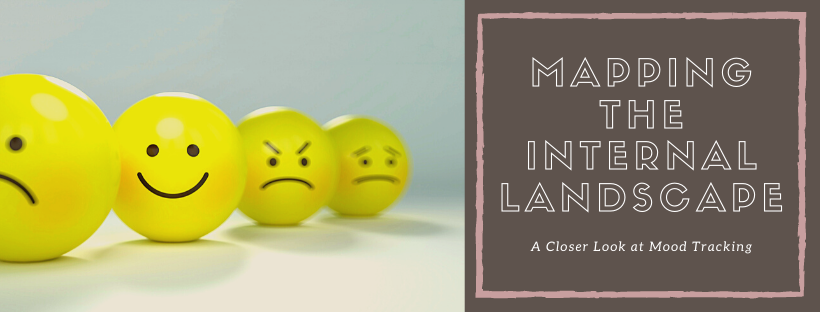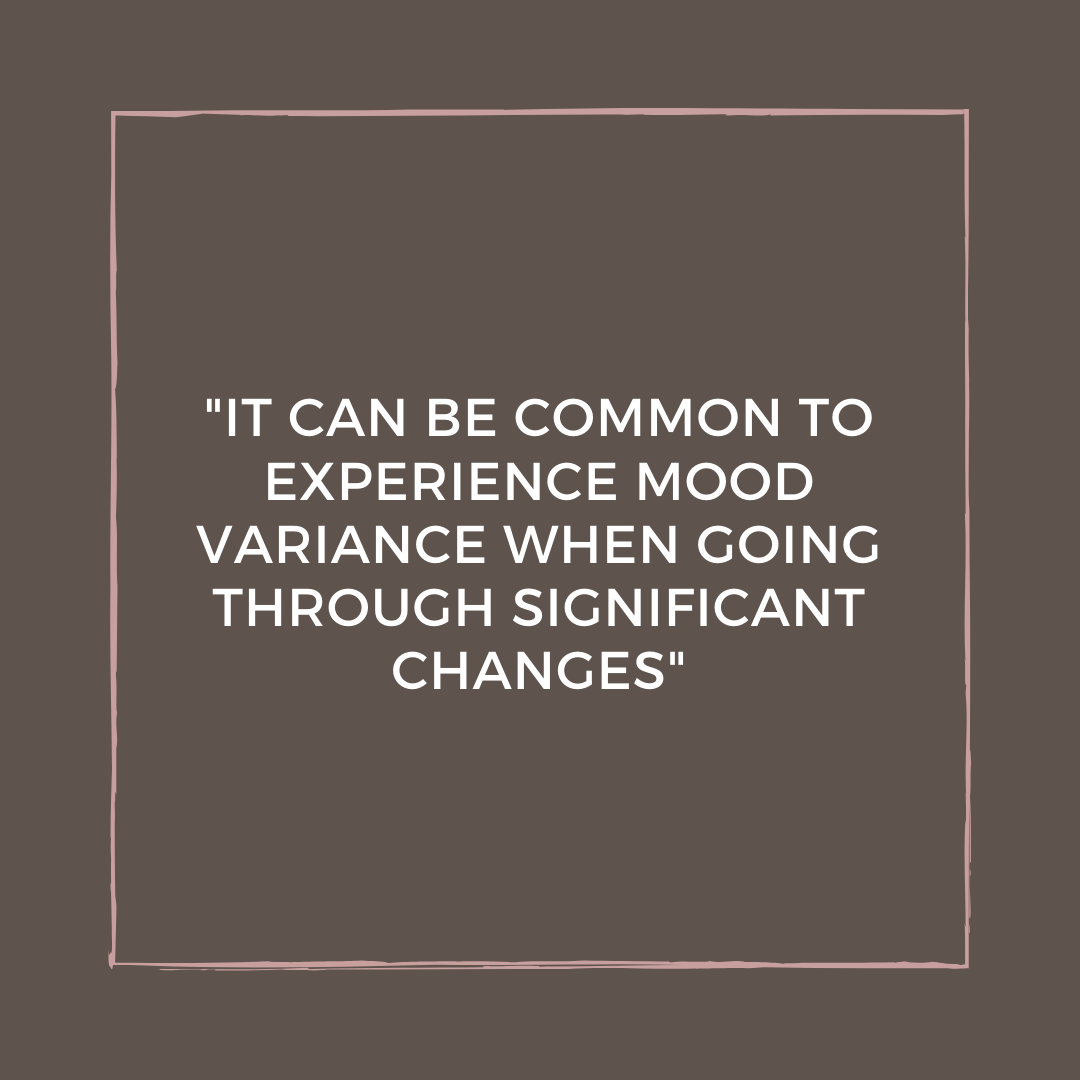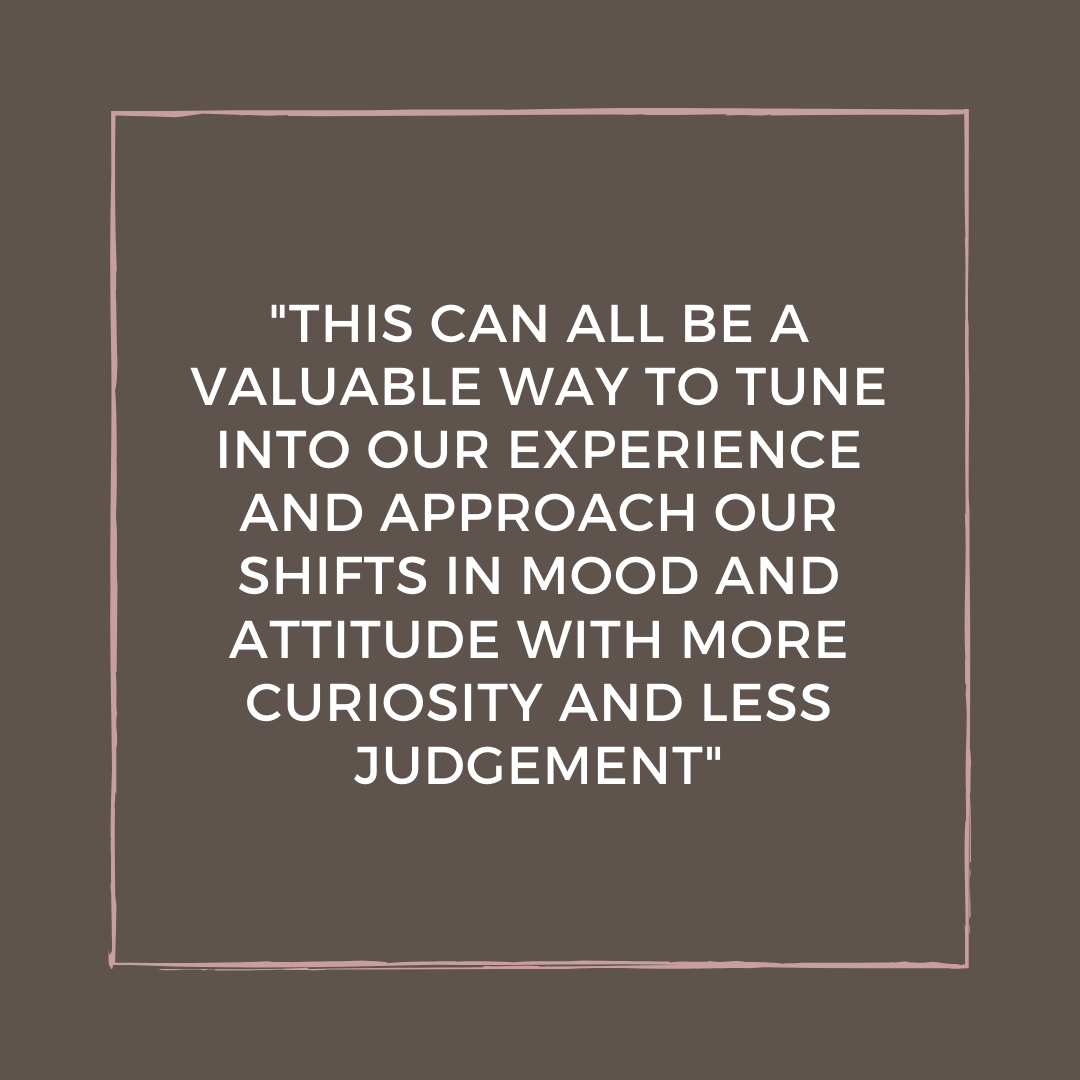|
Here's a TEDEd video and podcast episode to explore if you think you may have been involved in a cult of any kind and are looking for some clarity around the experience itself or the aftermath from the experience. The impacts of cult participation can show up when involved with any person or group that encourages you to give up control over how you think and view yourself or the world around you. The impacts of giving up personal agency and interpretation of your own thoughts and feelings can be far reaching and confusing. Therapy with a supportive person who won't force things, is aware of cult phenomena, and values cult recovery efforts can be useful.
0 Comments
Have your mood states been varying significantly from day to day or maybe even hour to hour? Do you find yourself happy and content one day, anxious the next, followed by a day of feeling anger or sadness? If so, you may be like many people right now. This fluctuation in mood is also something I hear described regularly in therapy. It can be common to experience mood variance when going through significant changes or in the wake of a loss or transition. While we are experiencing significant stress or feeling overwhelmed it can be tough to contact consistent mood states as we attempt to adjust to so much at once. In these moments it can make sense to seek professional help
the impermanent nature of our feelings, even the ones that convince us they are absolutely true and never leaving. Mood tracking can reveal patterns in our own behavior and how those patterns might correlate with other aspects of our daily life. For example, am I more angry on days when I’m participating in certain activities? Do I feel sadness following really enjoyable or positive experiences? Mood states don’t always follow patterns or a clear rhyme or reason so the more data we can gather about our experiences the better. Mood tracking can happen in a variety of ways, and I encourage finding a way that makes the most sense for you. In therapy sometimes we use worksheets or tracking logs to This can all be a valuable way to tune into our experience and approach our shifts in mood and attitude with more curiosity and less judgement. I realize that even with many helpful resources and coping strategies at my disposal my mood state is not entirely in my control and especially not during times of crisis when so many things are up in the air and uncertain. How mood tracking can be beneficial:
How do I track my mood?
A note on my own mood in the wake of COVID-19: Mood shifts are common enough but during current world circumstances mood shifts might be experienced more often or with more intensity. As I track my own mood I recognized
|
AuthorI am a therapist in private practice working to assist those struggling with self-doubt, guilt/shame, addiction, anxiety, depression, and grief to decreasing the struggle with internal distress and commit to actions that move them closer to the things they value most. Archives
September 2020
Categories
All
|




 RSS Feed
RSS Feed